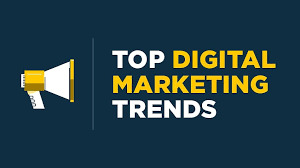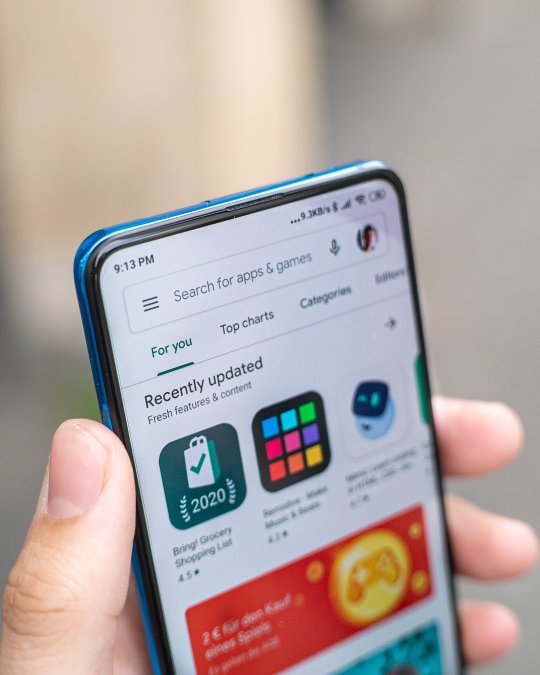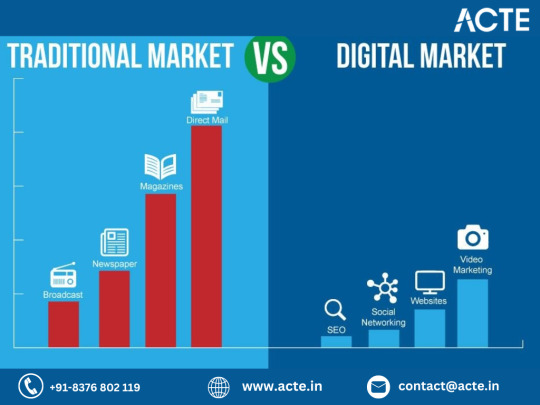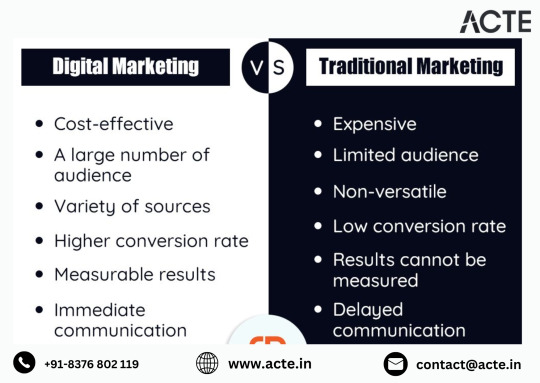#Digital Video Content Market Segmentation
Text

Flutter App Development
Elevate your digital presence with our expert Flutter app development services, crafting high-performance cross-platform solutions!
#https://www.techaheadcorp.com/services/flutter-app-development-company/#digital marketing services#growth marketing strategies#online advertising#search engine optimization#social media marketing#content marketing#email marketing#conversion rate optimization#website analytics#pay-per-click advertising#mobile marketing#influencer marketing#video marketing#lead generation#customer segmentation#marketing automation#brand development#online reputation management#user experience optimization#data-driven marketing#digital campaign management#audience targeting#competitive analysis#marketing funnel optimization#strategic planning#web application development#custom web development#web development services#responsive web development
0 notes
Text
Digital Marketing Strategy
Set Clear Goals and Objectives: The first step in creating a digital marketing strategy is to define clear goals and objectives. These goals should be specific, measurable, attainable, relevant, and time-bound (SMART). Examples include increasing website traffic, generating leads, improving brand awareness, or driving online sales.
2. Understand Your Target Audience: To effectively reach and engage your target audience, it's important to understand their demographics, interests, behaviors, and pain points. Conduct market research, analyze customer data, and create buyer personas to gain insightful information about your target audience. This will help you tailor your digital marketing efforts to resonate with them.
3. Choose the Right Digital Channels: Identify the digital channels that are most relevant to your target audience and align with your marketing goals. Common digital channels include websites, search engines, social media platforms, email marketing, content marketing, mobile apps, and online advertising. Each channel has unique characteristics and advantages, so choose the ones that best suit your business and audience.
4. Develop Content Strategy: Content is at the heart of digital marketing. Create a content strategy that focuses on delivering value to your target audience. Plan and produce high-quality content that aligns with their interests, needs, and preferences. This can include blog articles, videos, infographics, eBooks, webinars, and social media posts. Consistency and relevance are key to establishing thought leadership and building trust with your audience.
5. Optimize for Search Engines: Implement search engine optimization (SEO) strategies to improve your website's visibility in search engine results. Conduct keyword research to identify relevant search terms and optimize your website's on-page elements, such as meta tags, headings, and content. Create high-quality backlinks from reputable websites to boost your website's authority.
6. Leverage Social Media: Utilize social media platforms to connect with your audience, build brand awareness, and foster engagement. Identify the platforms where your target audience is most active and create compelling content tailored to each platform. Engage in conversations, respond to comments, and encourage user-generated content to cultivate a sense of community and brand loyalty.
7. Implement Email Marketing: Email marketing remains an effective way to nurture leads and engage with existing customers. Develop an email marketing strategy that includes personalized and segmented email campaigns. Provide valuable content, offers, and promotions to your subscribers, and automate email sequences to streamline your communication.
8. Monitor, Measure, and Adjust: Regularly monitor the performance of your digital marketing efforts using analytics tools. Track key performance indicators (KPIs) such as website traffic, conversion rates, engagement metrics, and ROI. Use the insights gained to identify areas for improvement and make data-driven adjustments to optimize your strategy.
9. Stay Updated and Evolve: The digital marketing landscape is constantly evolving. Stay updated with the latest trends, technologies, and industry best practices. Experiment with new channels and tactics to reach your audience. Continuously adapt your strategy based on market changes and feedback from your audience.
10. Evaluate and Refine: Regularly evaluate the effectiveness of your digital marketing strategy against your goals. Identify successes, challenges, and areas of improvement. Refine your strategy based on the insights gained to ensure continuous growth and success.
11. In summary, a well-rounded digital marketing strategy involves setting clear goals, understanding your audience, choosing the right channels, creating valuable content, optimizing for search engines, leveraging social media and email marketing, monitoring and measuring performance, staying updated, and evaluating and refining your approach. By following these steps, businesses can effectively harness the power of digital marketing to achieve their objectives and drive sustainable growth.

19 notes
·
View notes
Text
Miami Vice (the 80s television show) was for 1980s pop music what Reagan-deregulated children's TV was for Mattel and Hasbro toys. Just as every Transformers of My Little Pony episode was constructed around a marketable children's toy, any given episode of Miami Vice would contain a segment featuring Crockett and Tubbs (delightful 80s detective names) that would effectively act as a mini music video within the episode. MTV was en vogue, and frankly 3-5 minutes of filler content is great for keeping your plots tight while meeting time limits. Plus, they're vibey.
Of course music has a much more impactful role in art than the latest GI Joe action figure release, but the point remains that Miami Vice was not a surprising pick for the cash grab feature length adaptations of 70s and 80s TV shows. The real surprise came when the 2006 Miami Vice movie actually ended up being good.
I'll attribute most of this to the fact that Miami Vice was directed by Micheal Mann, who not only directed landmark crime movies like Heat and Thief, but also produced the original TV series and therefore understood the soul of what Miami Vice is: about the vibes.
Jamie Fox aggressively talking into a flip phone. Twin-hull speed boat races. Colin Farrell with a mustache and mullet brooding into the sunset as his Banana Republic button down flaps in the wind. Ferraris, Cadillacs, Bentleys, cop cars, and Private jets. Police standoffs in shipyards. Nightclub stakeouts. FBI agents leaking intel. Beachfront mansions. It's all vibes, all the time. This is truly faithful to the formula. You could tell me this was an unproduced two part episode and I'd believe you.
Except this is 2006. The Ferrari is a 360, not a Testarossa. The Cadillacs are Escalades. The Bentley is now being manufactured by the VW group. The vibes are there, but the music is Linkin Park and Jay Z doing Numb/Encore, not Phil Collins doing In the Air Tonight. Driving fast cross country isn't the Cannonball Run anymore, it's the Gumball 3000. The drug war still rages, but now we face the consequences of past Iran-Contra mistakes. The real constants throughout are rich people doing drugs and immaculate vibes.
And they're spectacular. The whole thing is shot on Sony digital, done in a documentary style that screams the 2006 Paris Hilton trashy rich, not 1986 Grace Jones flashy rich, yet it captures the tone and soul of the arpeggiating synth and drum machine-soaked TV show even while replacing Dire Straights with Moby and Audioslave.
This is the difference between Miami Vice and other TV adaptations of the same era. Starsky and Hutch or 21 Jump Street leaned into comedy, while Charlie's Angels or The A-Team focused more on campiness to support their premises in the modern day.
Miami Vice does none of this, instead focusing on earnestness and pure vibes to produce a solid thriller full of cars, crime, and dramatic sequences of men staring into the sunset.
8 notes
·
View notes
Text
New Business Marketing Tips and Tricks for Success
Starting a new business can be an exhilarating adventure, but it also comes with its fair share of challenges, especially in the competitive landscape of today's marketplace. To stand out and thrive, effective marketing is crucial. Here are four essential marketing tips and tricks to help your new business succeed:
Define Your Target Audience and Create Customer Personas:
One of the first steps in crafting a successful marketing strategy for your new business is to identify and understand your target audience. Who are your ideal customers, and what are their needs, preferences, and pain points? Creating customer personas can help you visualize and humanize your audience, making it easier to tailor your marketing efforts effectively.

Start by conducting market research to gather data about your potential customers. Analyze demographics, psychographics, and behavior patterns to create detailed customer personas. These personas should include information like age, gender, income, interests, and pain points.
Once you have a clear understanding of your target audience, customize your marketing messages and strategies to resonate with them. Craft compelling content, advertisements, and promotions that address their specific needs and desires. By speaking directly to your ideal customers, you'll increase the chances of building meaningful connections and driving conversions.
Leverage the Power of Digital Marketing:
In the digital age, online presence and digital marketing are indispensable for any new business. Here are some essential digital marketing strategies to consider:
a. Build a User-Friendly Website: Your website is often the first point of contact for potential customers. Ensure that it is well-designed, easy to navigate, and mobile-responsive. Optimize it for search engines (SEO) to improve your visibility in search results.
b. Content Marketing: Create valuable and relevant content that educates, entertains, or solves problems for your target audience. Blog posts, videos, infographics, and social media updates can all be part of your content marketing strategy.

c. Social Media Marketing: Identify the social media platforms where your audience is most active and engage with them there. Develop a content calendar and use a mix of organic and paid content to reach a wider audience.
d. Email Marketing: Build and nurture an email list to stay in touch with your customers. Send personalized and relevant content, offers, and updates to keep them engaged and informed.
e. Pay-Per-Click Advertising (PPC): Consider running targeted PPC campaigns on platforms like Google Ads and Facebook Ads to reach potential customers actively searching for your products or services.
Emphasize Customer Relationships and Engagement:
In a competitive market, building and maintaining strong customer relationships is vital. Consider these strategies to enhance customer engagement:
a. Provide Exceptional Customer Service: Respond promptly to inquiries and address customer concerns with care. Happy customers are more likely to become loyal advocates for your brand.
b. Personalization: Use customer data and segmentation to personalize your marketing messages and offers. People appreciate tailored experiences that cater to their unique preferences.

c. Encourage User-Generated Content: Encourage customers to share their experiences with your products or services on social media or review platforms. User-generated content can build trust and credibility.
d. Loyalty Programs: Reward repeat customers with loyalty programs, discounts, or exclusive access to new products or services. Loyalty programs can foster long-term relationships and increase customer retention.
Monitor, Analyze, and Adapt:
Marketing is not a one-size-fits-all endeavor. To continually improve your strategies, track key performance indicators (KPIs) and adapt based on the data:
a. Use Analytics Tools: Employ tools like Google Analytics, social media insights, and email marketing metrics to monitor the performance of your marketing efforts.
b. A/B Testing: Experiment with different marketing approaches and compare their results through A/B testing. This allows you to refine your strategies over time.

c. Stay Informed: Keep up with industry trends, competitors, and evolving customer preferences. Stay open to adjusting your marketing plan as needed.
In conclusion, successful marketing for a new business involves understanding your audience, utilizing digital strategies, fostering customer relationships, and staying adaptable. By implementing these tips and tricks, your new business can navigate the competitive landscape and carve out its own path to success.
#seo#online marketing#digitalmarketing#marketing agency#learn digital marketing#digital marketing service#seo marketing#digital marketing course#digital marketing#seo expert#business success#business marketing#marketing tips
19 notes
·
View notes
Text
DIGITAL MARKETING
Digital Marketing Course Content
Fundamentals of Digital marketing & Its Significance, Traditional marketing Vs Digital
Marketing, Evolution of Digital Marketing, Digital Marketing Landscape, Key Drivers,
Digital Consumer & Communities, Gen Y & Netizen’s expectation & influence wrt
Digital Marketing.
The Digital users in India, Digital marketing Strategy- Consumer Decision journey,
POEM Framework, Segmenting & Customizing messages, Digital advertising Market in
India, Skills in Digital Marketing, Digital marketing Plan.
Terminology used in Digital Marketing, PPC and online marketing through social media,
Social Media Marketing, SEO techniques, Keyword advertising, Google web-master and
analytics overview, Affiliate Marketing, Email Marketing, Mobile marketing
Display adverting, Buying Models, different type of ad tools, Display advertising
terminology, types of display ads, different ad formats, Ad placement techniques,
Important ad terminology, Programmatic Digital Advertising.
Social Media Marketing
Fundamentals of Social Media Marketing& its significance, Necessity of Social media
Marketing, Building a Successful strategy: Goal Setting, Implementation.
Facebook Marketing: Facebook for Business, Facebook Insight, Different types of Ad
formats, Setting up Facebook Advertising Account, Facebook audience & types,
Designing Facebook Advertising campaigns, Facebook Avatar, Apps, Live, Hashtags
LinkedIn Marketing: Importance of LinkedIn presence, LinkedIn Strategy, Content
Strategy, LinkedIn analysis, Targeting, Ad Campaign
Twitter Marketing:- Basics, Building a content strategy, Twitter usage, Twitter Ads,
Twitter ad campaigns, Twitter Analytics, Twitter Tools and tips for mangers. Instagram
& Snapchat basics.
Search Engine Optimization
Introduction to SEO, How Search engine works, SEO Phases, History Of SEO, How
SEO Works, What is Googlebot (Google Crawler), Types Of SEO technique, Keywords,
Keyword Planner tools
On page Optimization, Technical Elements, HTML tags, Schema.org, RSS Feeds,
Microsites, Yoast SEO Plug-in
Off page Optimization- About Off page optimization, Authority & hubs, Backlink, Blog
Posts, Press Release, Forums, Unnatural links.
Social media Reach- Video Creation & Submission, Maintenance- SEO tactics, Google
search Engine, Other Suggested tools
Advertising Tools & Its Optimization
Advertising & its importance, Digital Advertising, Different Digital Advertisement,
Performance of Digital Advertising:- Process & players, Display Advertising Media,
Digital metrics
Buying Models- CPC, CPM, CPL, CPA, fixed Cost/Sponsorship, Targeting:- Contextual
targeting, remarking, Demographics , Geographic & Language Targeting.
Display adverting, different type of ad tools, Display advertising terminology, types of
display ads, different ad formats, Ad placement techniques, Important ad terminology,
ROI measurement techniques, AdWords & Adsense.
YouTube Advertising:- YouTube Channels, YouTube Ads, Type of Videos, Buying
Models, Targeting & optimization, Designing & monitoring Video Campaigns, Display
campaigns
Website Hosting Using Word Press
Website Planning & Development- Website, Types of Websites, Phases of website
development, Keywords: Selection process
Domain & Web Hosting:- Domain, Types of Domain, Where to Buy Domain,
Webhosting, How to buy Webhosting
Building Website using Word press-What is Word press, CMS, Post and Page
Word press Plug-ins- Different Plug-ins, social media Plug-ins, page builder plug-ins:
the elementor, how to insert a section, how to insert logo, Google Micro sites
2 notes
·
View notes
Text
What is Digital marketing and how can we earn from it?
According to me I can offer valuable insights into the field and lucrative earning opportunities. Digital marketing involves promoting products, services, or brands through various online channels, including websites, social media, search engines, email, and mobile apps. Here are some strategies and examples that are working well for freelancers in the digital marketing industry:
Content Creation and Marketing: Content remains king in digital marketing, and freelancers can capitalize on this by offering content creation services such as blog writing, article writing, video production, and infographic design. High-quality, engaging content helps businesses attract and retain customers while improving their search engine rankings.
Example: A freelance writer specializing in technology creates informative blog posts and whitepapers for software companies, helping them establish thought leadership in their industry and drive organic traffic to their website.
Search Engine Optimization (SEO): SEO is essential for businesses to improve their visibility in search engine results pages (SERPs) and drive organic traffic to their websites. Freelancers can offer SEO services such as keyword research, on-page optimization, link building, and SEO audits to help clients rank higher in search engine rankings.
Example: An SEO specialist helps a local bakery optimize its website for relevant keywords such as "best cakes in [city]," resulting in increased online visibility and more foot traffic to the bakery.
Social Media Management: Many businesses struggle to effectively manage their social media presence. Freelancers can offer social media management services, including content creation, posting schedules, community engagement, and paid advertising campaigns, to help clients grow their social media following and drive engagement.
Example: A freelance social media manager helps a small business owner create and curate engaging content for their Instagram account, increasing brand awareness and attracting new customers.
Email Marketing: Email marketing remains one of the most effective ways to nurture leads, promote products or services, and maintain customer relationships. Freelancers can offer email marketing services such as email campaign creation, list segmentation, A/B testing, and performance tracking to help clients generate leads and drive sales.
Example: An email marketing freelancer designs and implements a series of automated email campaigns for an e-commerce retailer, resulting in higher open rates, click-through rates, and conversions.
Pay-Per-Click (PPC) Advertising: PPC advertising allows businesses to reach their target audience through targeted ads on search engines and social media platforms. Freelancers can offer PPC management services, including keyword research, ad creation, bid management, and performance tracking, to help clients maximize their return on investment (ROI) from PPC campaigns.
Example: A freelance PPC specialist helps a startup company launch and optimize Google Ads campaigns, driving qualified traffic to their website and increasing sales leads.
Affiliate Marketing: Freelancers can participate in affiliate marketing programs to earn commissions by promoting products or services through their website, blog, or social media channels. By partnering with companies as affiliates, freelancers can monetize their online presence and audience.
Example: A freelance blogger writes product reviews and tutorials on their website and includes affiliate links to recommended products, earning commissions for every sale generated through their affiliate links.
Ready to take your digital marketing skills to the next level? Enroll now in our comprehensive free online masterclass and unlock the secrets to success in the ever-evolving world of digital marketing.
#digital marketing#masterclass#learn#online earning#affliate#freelance#career#career in digital marketing
2 notes
·
View notes
Text
Content Marketing Strategies for the Digital Age: Engaging Your Audience Across Platforms
ntroduction:
Brief overview of the importance of content marketing in today’s digital landscape.
Introduction to the concept of engaging audiences across various digital platforms.
Understanding Your Audience
Importance of audience research and segmentation in content marketing.
Utilizing analytics tools to gain insights into audience demographics, preferences, and behaviors.
Creating Compelling Content
Crafting high-quality, valuable content that resonates with your target audience.
Utilizing diverse formats such as blog posts, videos, infographics, podcasts, and interactive content.
Tailoring Content for Different Platforms
Discussing platform-specific content strategies for social media platforms (e.g., Instagram, Facebook, Twitter, LinkedIn) and other channels (e.g., YouTube, TikTok, email newsletters).
Adapting content formats and messaging to align with each platform’s audience and features.
Implementing a Cross-Platform Content Distribution Strategy
Developing a content distribution plan to reach audiences across multiple channels.
Leveraging scheduling and automation tools to streamline content distribution workflows.
Integrating owned, earned, and paid media channels for maximum reach and impact.
Engaging and Interacting with Your Audience
Encouraging audience participation through comments, shares, likes, and user-generated content.
Responding to audience feedback and fostering two-way communication.
Implementing interactive elements such as polls, quizzes, and live Q&A sessions to increase engagement.
Measuring and Analyzing Content Performance
Tracking key performance indicators (KPIs) such as website traffic, engagement metrics, conversion rates, and ROI.
Utilizing analytics platforms to evaluate the effectiveness of content marketing efforts and optimize strategies accordingly.
Evolving Your Content Strategy
Staying updated on industry trends, platform changes, and emerging technologies.
Continuously experimenting with new content formats, channels, and tactics to keep your audience engaged and your content strategy agile.
Conclusion:
Recap of key points discussed.
Final thoughts on the importance of adaptive content marketing strategies for engaging audiences across digital platforms in the evolving digital age.
2 notes
·
View notes
Text
The Future of Digital Advertising
In the ever-evolving landscape of digital marketing, staying ahead of the curve is paramount for businesses striving to remain competitive and relevant. As technology continues to advance and consumer behaviors evolve, new trends emerge, reshaping the digital marketing landscape. In this article, we'll explore some of the most prominent emerging trends in digital marketing and speculate on what the future holds for this dynamic industry.
1.Artificial Intelligence (AI) and Machine Learning:
AI and machine learning have already made significant strides in revolutionizing digital marketing, and their influence is only expected to grow. AI-powered chatbots, personalized recommendation engines, and predictive analytics are just a few examples of how AI is transforming marketing strategies. In the future, we can anticipate even more sophisticated AI applications, such as predictive content creation, advanced customer segmentation, and dynamic pricing optimization.
2.Voice Search Optimization (VSO):
With the rising popularity of voice-activated devices and virtual assistants, voice search is poised to become a dominant force in digital marketing. Businesses will need to adapt their SEO strategies to accommodate natural language queries and conversational search patterns. Optimizing content for voice search, leveraging schema markup, and focusing on local SEO will be key tactics for brands looking to capitalize on this emerging trend.
3.Augmented Reality (AR) and Virtual Reality (VR):
AR and VR technologies have the potential to revolutionize the way consumers interact with brands and products. From immersive shopping experiences to virtual try-on features, AR and VR offer exciting opportunities for marketers to engage audiences in new and innovative ways. As these technologies become more accessible and mainstream, we can expect to see widespread adoption across various industries, including retail, entertainment, and tourism.
4.Interactive Content Experiences:
As consumers increasingly seek out interactive and engaging content, marketers are embracing interactive content formats such as quizzes, polls, calculators, and 360-degree videos. These interactive experiences not only capture users' attention but also provide valuable insights into their preferences and behaviors. Moving forward, we can anticipate the continued growth of interactive content as brands look for creative ways to stand out in a crowded digital landscape.
5.Privacy and Data Protection:
In light of increasing concerns about data privacy and security, consumers are becoming more cautious about sharing their personal information online. As a result, there is a growing emphasis on transparency, consent, and data protection in digital marketing practices. Brands that prioritize privacy and build trust with their audience will have a competitive advantage in the future, while those that neglect these considerations may face backlash and reputational damage.
6.Purpose-Driven Marketing:
Today's consumers expect more from brands than just products and services—they want to support companies that align with their values and beliefs. Purpose-driven marketing, which focuses on social responsibility, sustainability, and ethical business practices, is gaining traction as consumers seek out brands that make a positive impact on society and the environment. In the future, we can expect to see more brands integrating purpose-driven messaging into their marketing campaigns and corporate branding efforts.
In conclusion, the future of digital marketing is filled with exciting possibilities and opportunities for innovation. By embracing emerging trends such as AI, voice search optimization, AR/VR, interactive content, privacy protection, and purpose-driven marketing, businesses can position themselves for success in an increasingly competitive digital landscape. However, staying ahead of the curve requires continuous adaptation, experimentation, and a willingness to embrace change. As we look to the future, one thing is certain: the only constant in digital marketing is change.
2 notes
·
View notes
Text
Ultimate Guide to Real Estate Lead Generation: Digital Pleasure World
Real Estate Lead Generation: In the fast-paced world of real estate, the quest for quality leads is akin to finding a gem in a sea of stones. In this comprehensive guide, we'll delve into the realm of digital marketing and unveil a treasure trove of strategies to help you unlock the door to success in lead generation. Whether you're a seasoned agent or just dipping your toes into the market, these actionable tips will pave the way for your journey towards real estate prosperity.
Chapter 1: Crafting Your Digital Presence
Your online presence is your digital storefront, beckoning potential clients to step inside and explore the world of real estate. In this chapter, we'll discuss the foundational elements of establishing a captivating digital presence.
Building a Stunning Website: Your website serves as the cornerstone of your online presence. Invest in a sleek and user-friendly design that showcases your listings, services, and expertise.
Mastering the Art of SEO: Unlock the power of search engine optimization (SEO) to ensure your website ranks high in search engine results. Conduct keyword research, optimize meta tags, and create compelling content to attract organic traffic.
Embracing Content Marketing: Content is king in the digital realm. Create engaging blog posts, videos, and infographics that educate and inspire your audience. Share valuable insights, market trends, and neighborhood highlights to establish yourself as a trusted authority in the industry.

Chapter 2: Social Media Mastery
In the age of social media, cultivating a strong presence on popular platforms is essential for connecting with potential clients and nurturing leads. Let's explore how you can leverage the power of social media to elevate your real estate game.
Harnessing the Power of Facebook: With over 2 billion monthly active users, Facebook is a goldmine for real estate professionals. Create compelling posts, share captivating visuals, and engage with your audience to cultivate meaningful relationships.
Instagram: The Visual Showcase: As a visual-centric platform, Instagram offers the perfect canvas to showcase stunning property photos and videos. Use hashtags, stories, and reels to attract attention and drive engagement.
LinkedIn: The Professional Network: Position yourself as a thought leader in the real estate industry by sharing valuable insights and networking with fellow professionals on LinkedIn. Join industry groups, participate in discussions, and publish articles to expand your reach.
Chapter 3: Email Marketing Excellence
Email marketing remains one of the most effective tools in a real estate agent's arsenal for nurturing leads and staying top-of-mind with clients. Let's uncover the secrets to crafting compelling email campaigns that drive results.
Building Your Email List: Start by building a robust email list of potential clients and leads. Offer valuable incentives such as free market reports or exclusive listings to entice visitors to subscribe to your newsletter.
Segmentation and Personalization: Tailor your email campaigns to specific segments of your audience based on their interests, preferences, and buying behavior. Personalize your messages to make each recipient feel valued and understood.
Automation and Drip Campaigns: Streamline your email marketing efforts with automation tools that allow you to send targeted messages at the right time. Set up drip campaigns to nurture leads through each stage of the buying or selling process.
Chapter 4: Paid Advertising Strategies
In a competitive market, paid advertising can give you the edge you need to stand out from the crowd and reach your target audience with precision. Let's explore the world of paid advertising and discover how you can maximize your ROI.
Google Ads: The Gateway to Success: Dominate the search engine results page with Google Ads campaigns that target keywords relevant to your niche. Craft compelling ad copy, optimize your landing pages, and track your conversions to measure your success.
Facebook and Instagram Ads: Leverage the powerful targeting options available on Facebook and Instagram to reach potential clients based on demographics, interests, and behaviors. Experiment with different ad formats such as carousel ads, video ads, and lead generation ads to find what works best for your audience.
Retargeting Campaigns: Keep your brand top-of-mind with retargeting campaigns that display ads to users who have previously visited your website or engaged with your content. Use dynamic retargeting to show personalized ads featuring specific properties or listings that match their interests.
Chapter 5: The Human Touch: Networking and Relationship Building
In an industry built on trust and personal connections, never underestimate the power of good old-fashioned networking. Let's explore how you can cultivate meaningful relationships with clients, colleagues, and industry influencers to fuel your success.
Joining Professional Associations: Get involved in local real estate associations and networking groups to expand your professional network and stay informed about industry trends and developments.
Hosting Events and Workshops: Organize educational events, workshops, or webinars to provide value to your audience and establish yourself as a knowledgeable expert in your field. Use these opportunities to forge new connections and nurture existing relationships.
Building Strategic Partnerships: Collaborate with complementary businesses such as mortgage brokers, home inspectors, and interior designers to offer additional value to your clients and expand your referral network. Establish mutually beneficial partnerships that help you reach new audiences and generate more leads.
Chapter 6: Tracking Your Success and Iterating for Improvement
In the ever-evolving landscape of digital marketing, success is not a destination but a journey of continuous improvement. Let's discuss how you can track your progress, analyze your results, and iterate your strategies for maximum impact.
Setting Measurable Goals: Define clear, measurable goals for your lead generation efforts, whether it's increasing website traffic, growing your email list, or closing more deals. Establish key performance indicators (KPIs) to track your progress and evaluate your success.
Analyzing Your Data: Use analytics tools such as Google Analytics, Facebook Insights, and email marketing platforms to gather data about your audience, engagement metrics, and conversion rates. Analyze this data to identify patterns, trends, and areas for improvement.
Experimenting and Testing: Don't be afraid to experiment with new strategies, tactics, and channels to see what resonates with your audience. A/B test your email subject lines, ad creatives, and landing page designs to optimize your performance and drive better results.
Staying Agile and Adaptable: In the fast-paced world of digital marketing, flexibility is key to staying ahead of the curve. Stay informed about industry trends, algorithm changes, and emerging technologies, and be prepared to adapt your strategies accordingly.
Conclusion
Congratulations! You've reached the end of our journey through the world of real estate lead generation. Armed with the knowledge and strategies outlined in this guide, you're well-equipped to navigate the digital landscape and unlock the door to success in your real estate endeavors. Remember, Rome wasn't built in a day, and neither is a thriving real estate business. Stay persistent, stay innovative, and above all, stay true to your passion for helping clients find their dream homes. Here's to your continued success in the exciting world of real estate!
2 notes
·
View notes
Text

App Store Optimization Strategies
Implement result-driven App Store Optimization Strategies for Better App Rankings!
#https://www.techaheadcorp.com/services/app-store-optimization-company/#digital marketing services#growth marketing strategies#online advertising#search engine optimization#social media marketing#content marketing#email marketing#conversion rate optimization#website analytics#pay-per-click advertising#mobile marketing#influencer marketing#video marketing#lead generation#customer segmentation#marketing automation#brand development#online reputation management#user experience optimization#data-driven marketing#digital campaign management#audience targeting#competitive analysis#marketing funnel optimization#strategic planning#web application development#custom web development#web development services#responsive web development
0 notes
Text
The Digital Advantage: How Digital Marketing Transforms Businesses
In today's dynamic business landscape, the shift towards digital marketing has revolutionized the way businesses connect with their audience. With its myriad of benefits, digital marketing has emerged as the preferred choice for brands aiming to make a significant impact in the competitive market. Let's delve deeper into why digital marketing reigns supreme over traditional marketing methods.

1. Cost-Effectiveness: Maximizing ROI
Digital marketing offers a remarkable advantage in terms of cost-effectiveness compared to traditional marketing avenues. While traditional methods such as print or television advertising often require substantial financial investments, digital marketing enables businesses to reach a wider audience at a fraction of the cost. Through platforms like social media advertising and email campaigns, businesses can allocate their budgets more efficiently, maximizing their return on investment (ROI).
2. Targeted Audience Reach: Precision Marketing
One of the most significant advantages of digital marketing is its ability to precisely target specific demographics, interests, and behaviors of the audience. Unlike traditional marketing approaches, which cast a wide net, digital marketing allows businesses to tailor their messages to reach the most relevant audience segments. Whether it's through Google Ads or Facebook Ads, marketers can refine their targeting parameters to ensure that their campaigns resonate with the right people, leading to higher conversion rates and engagement levels.
3. Measurable Results: Data-Driven Insights
Digital marketing provides unparalleled access to real-time analytics and insights, allowing businesses to gauge the effectiveness of their campaigns with precision. Unlike traditional methods, where tracking performance can be challenging, digital marketing offers comprehensive metrics such as website traffic, conversion rates, and engagement metrics. Armed with this data, marketers can make informed decisions, optimize their strategies, and refine their campaigns to achieve better results over time.
4. Global Reach: Breaking Geographical Barriers
With digital marketing, geographical limitations become a thing of the past. Unlike traditional methods confined to specific regions or markets, digital marketing enables businesses to reach a global audience seamlessly. This level of accessibility is particularly beneficial for small businesses and startups seeking to expand their reach beyond local boundaries without the need for extensive resources.

5. Interactivity and Engagement: Fostering Connections
Digital marketing thrives on interactivity, providing numerous opportunities for businesses to engage with their audience on a deeper level. Whether it's through interactive content formats like videos, quizzes, or polls, digital marketing encourages active participation, fostering stronger connections between brands and consumers. This heightened engagement not only enhances brand loyalty but also contributes to increased customer retention rates over time.
6. Flexibility and Adaptability: Agile Marketing Strategies
In the fast-paced digital landscape, adaptability is key to success. Digital marketing offers unparalleled flexibility, allowing businesses to pivot and adjust their strategies in response to real-time data and market trends. Whether it's tweaking ad creatives, refining targeting parameters, or experimenting with new channels, digital marketers have the agility to optimize campaigns on the fly, maximizing their impact and effectiveness.
7. Brand Building and Authority: Establishing Credibility
Through content marketing, social media engagement, and online PR efforts, digital marketing plays a pivotal role in building brand authority and credibility. By consistently delivering valuable and relevant content to their audience, businesses can position themselves as authoritative voices in their respective industries. This, in turn, fosters trust and credibility among consumers, ultimately strengthening the brand's reputation and positioning it as a leader in the market.
8. Accessibility: Leveling the Playing Field
Perhaps one of the most compelling aspects of digital marketing is its accessibility to businesses of all sizes. Unlike traditional methods that often favor large corporations with hefty budgets, digital marketing levels the playing field, enabling even small businesses to compete on a global scale. Moreover, digital channels offer unparalleled accessibility, allowing businesses to be available to their customers 24/7, enhancing convenience and satisfaction.
In conclusion, the advantages of digital marketing over traditional methods are undeniable. From its cost-effectiveness and precise targeting capabilities to its real-time analytics and global reach, digital marketing empowers businesses to connect with their audience in a meaningful way. By embracing the power of digital marketing, businesses can unlock endless opportunities for growth, innovation, and success in today's digital age.
#tech#training#digital marketing#digital marketing company#email marketing#digital marketing course#online marketing#search engine optimization#seo#seo services
2 notes
·
View notes
Text
Enhance Your Brand's Online Presence with Top-notch Social Media Marketing Services in Delhi
In today's digitally-driven world, a strong online presence is paramount for businesses aiming to thrive and succeed. Social media platforms have emerged as powerful tools that enable brands to connect, engage, and expand their reach to a broader audience. For businesses in Delhi, capitalizing on effective social media marketing services has become crucial to stay ahead in the competitive market landscape.
Welcome to WeboClimb, your professional SEO company in Delhi. As a top-rated digital marketing company in India, we offer a 360° approach to enhance your online business. Our services encompass SEO, social media marketing, logo creation, creative graphic designing, and affordable website designing & development. With expertise in local SEO, email marketing, content creation, and PPC campaigns, we cater to service-based and e-commerce businesses in Udaipur and beyond. Partner with us for the best results-driven advertisement and strategic branding solutions.
What Are Social Media Marketing Services?
Social media marketing services encompass a range of strategies and activities designed to leverage the potential of various social media platforms to promote a brand, generate leads, and foster customer engagement. These services encompass everything from content creation and curation to targeted advertising, community management, and performance analysis.
Why Choose Social Media Marketing Services in Delhi?
Delhi, being a vibrant and thriving hub of businesses, offers a unique environment where innovation and competitiveness thrive. Choosing specialized social media marketing services in Delhi can provide several advantages for your brand:
Local Expertise: A social media marketing agency based in Delhi understands the local market dynamics, trends, and consumer behaviors. This localized knowledge allows them to tailor strategies that resonate with the city's audience, giving your brand a competitive edge.
Strategic Approach: Professional social media marketing services adopt a strategic approach. They conduct thorough research to identify your target audience, craft compelling content, and develop a content calendar that aligns with your business goals.
Engagement and Interaction: Social media is not just about posting content; it's about engaging with your audience. A skilled agency knows how to initiate conversations, respond to comments, and create a sense of community around your brand.
Data-Driven Insights: Implementing effective social media marketing requires continuous monitoring and analysis. Delhi-based agencies employ various tools to track key metrics, measure campaign performance, and refine strategies accordingly.
Multifaceted Campaigns: Whether it's Facebook, Instagram, Twitter, or LinkedIn, a proficient agency can craft tailored campaigns for each platform, maximizing the impact of your social media efforts.
The Key Elements of Social Media Marketing Services
Content Creation: Engaging and relevant content is the cornerstone of any successful social media strategy. The agency will create a mix of text, images, videos, and graphics that resonate with your target audience.
Audience Targeting: Precise audience targeting is essential to ensure your content reaches the right people. The agency uses demographic, geographic, and psychographic data to refine your audience segments.
Social Advertising: Paid social media advertising amplifies your reach and boosts visibility. The agency designs and manages ad campaigns that align with your business objectives.
Community Management: Building a loyal online community requires consistent interaction. The agency will promptly respond to comments, messages, and feedback, fostering a positive brand image.
Performance Analysis: Regular assessment of campaign performance allows for adjustments and optimizations. The agency tracks key metrics, such as engagement rate, click-through rate, and conversion rate, to ensure your goals are met.
In conclusion, social media marketing services in Delhi offer an invaluable opportunity for businesses to establish a robust online presence, connect with their audience, and drive business growth. By partnering with a skilled agency that understands the local market dynamics, you can leverage the full potential of social media platforms and stand out in the digital landscape. With strategic planning, engaging content, and data-driven insights, your brand can truly shine in the realm of social media marketing.
#social media marketing#logo creation#digital marketing#seo#email marketing#digital marketing company in delhi
19 notes
·
View notes
Text
Digital Marketing Company: Driving Your Business Forward.
In today's digital age, having a robust online presence is crucial for the success of any business. With millions of consumers turning to the internet to research products and services, businesses need to leverage digital marketing strategies to reach their target audience effectively. This is where a digital marketing company plays a pivotal role. In this article, we'll delve into the world of digital marketing companies, exploring what they do, why they're essential, and how they can help your business thrive in the competitive online landscape.

Understanding Digital Marketing Companies
Digital marketing companies specialize in utilizing various online channels and strategies to promote businesses, build brand awareness, and drive sales and leads. These companies employ a team of experts with diverse skill sets, including SEO specialists, content creators, social media managers, PPC (Pay-Per-Click) advertisers, and more. Their primary goal is to develop and execute comprehensive digital marketing campaigns tailored to each client's unique needs and objectives.
Services Offered by Digital Marketing Companies
Digital marketing companies offer a wide range of services to help businesses establish a strong online presence and achieve their marketing goals. Some of the key services include:
Search Engine Optimization (SEO)

SEOis the process of optimizing a website to rank higher in search engine results pages (SERPs) for relevant keywords. Digital marketing companies employ various strategies, such as keyword research, on-page optimization, link building, and content creation, to improve a website's visibility and organic traffic.
Content Marketing
Content marketing involves creating and distributing valuable, relevant, and consistent content to attract and engage a target audience. Digital marketing companies develop content strategies and produce high-quality content in various formats, including blog posts, articles, videos, infographics, and more, to drive traffic and conversions.
Social Media Marketing (SMM)
SMM involves using social media platforms like Facebook, Instagram, Twitter, LinkedIn, and others to connect with your audience, build brand awareness, and drive website traffic. Digital marketing companies develop customized social media strategies, create engaging content, and manage social media accounts to help businesses reach their marketing objectives.
Pay-Per-Click Advertising (PPC)
PPC advertising allows businesses to bid for ad placement on search engines and other digital platforms. Digital marketing companies create and manage PPC campaigns to drive targeted traffic to a website, generate leads, and increase sales. They optimize ad copy, target keywords, and monitor campaign performance to maximize ROI.
Email Marketing
Email marketing involves sending personalized emails to a targeted list of subscribers to promote products, services, or events. Digital marketing companies design and execute email marketing campaigns, segment email lists, create engaging content, and track email performance metrics to nurture leads and drive conversions.
Website Design and Development

A well-designed and user-friendly website is essential for attracting and retaining customers online. Digital marketing companies offer website design and development services to create visually appealing, responsive, and functional websites that align with a brand's identity and goals.
Benefits of Hiring a Digital Marketing Company
Partnering with a digital marketing company offers numerous benefits for businesses looking to enhance their online presence and grow their customer base. Some of the key benefits include:
Expertise and Experience
Digital marketing companies have a team of experienced professionals with specialized skills and knowledge in various areas of digital marketing. They stay updated on the latest trends, algorithms, and best practices to ensure their clients achieve optimal results.
Cost-Effectiveness
Hiring a digital marketing company can be more cost-effective than hiring an in-house marketing team. With a digital marketing agency, businesses can access a full range of marketing services without the overhead costs associated with hiring and training employees.
Scalability
Digital marketing companies can scale their services according to a business's needs and budget. Whether you're a small startup or a large enterprise, a digital marketing agency can tailor its services to meet your specific requirements and goals.
Time-Saving
Managing digital marketing campaigns requires time, effort, and expertise. By outsourcing your digital marketing efforts to a reputable agency, you free up your time to focus on other core aspects of your business, such as product development, customer service, and strategic planning.
Measurable Results
One of the significant advantages of digital marketing is its measurability. Digital marketing companies use advanced analytics tools to track and measure the performance of campaigns in real-time. They provide detailed reports and insights, allowing businesses to make data-driven decisions and optimize their marketing strategies for maximum impact.
Choosing the Right Digital Marketing Company.

Experience and Reputation: Look for digital marketing companies with a proven track record of success and positive client testimonials.
Services Offered: Consider the range of services offered by the agency and whether they align with your business goals and objectives.
Industry Expertise: Choose a digital marketing company that has experience working with businesses in your industry.
Communication and Transparency: Opt for an agency that values communication and transparency and keeps you informed about the progress of your campaigns.
Budget and Pricing: Determine your budget and choose a digital marketing company that offers services within your price range while delivering quality results.
Conclusion
In conclusion, a SEO company plays a crucial role in helping businesses navigate the complex world of online marketing and achieve their growth objectives. By leveraging their expertise, experience, and resources, businesses can establish a strong online presence, attract more customers, and drive revenue. Whether you're a small startup or a large enterprise, partnering with the right digital marketing company can make all the difference in driving your business forward in today's competitive digital landscape.
2 notes
·
View notes
Text
What is Digital Marketing ?
Digital marketing refers to the use of digital channels, platforms, and technologies to promote products, services, or brands to target consumers. It encompasses a wide range of online tactics and strategies aimed at reaching and engaging with potential customers. Digital marketing leverages various digital mediums such as search engines, social media, email, websites, mobile apps, and other online platforms to connect with audiences.
Key components of digital marketing include:
Search Engine Optimization (SEO): Optimizing website content to improve its visibility in search engine results pages (SERPs) and increase organic (non-paid) traffic.
Content Marketing: Creating and distributing valuable, relevant content to attract and engage target audiences. This can include blog posts, articles, videos, infographics, and more.
Social Media Marketing: Promoting products or services on social media platforms like Facebook, Instagram, Twitter, LinkedIn, and others to increase brand awareness, drive traffic, and generate leads.
Email Marketing: Sending targeted email campaigns to subscribers to nurture leads, build relationships, and promote products or services.
Pay-Per-Click (PPC) Advertising: Running paid advertisements on search engines (e.g., Google Ads) or social media platforms (e.g., Facebook Ads) to drive traffic to a website or landing page. Advertisers pay a fee each time their ad is clicked.
Affiliate Marketing: Partnering with other businesses or individuals (affiliates) who promote your products or services in exchange for a commission for each sale or lead generated through their referral.
Influencer Marketing: Collaborating with influencers or individuals with a large and engaged following on social media to promote products or services to their audience.
Marketing Automation: Using software and technologies to automate repetitive tasks such as email marketing, social media posting, and customer segmentation, thereby streamlining marketing processes and improving efficiency.
Digital marketing offers businesses numerous benefits, including the ability to reach a global audience, target specific demographics more precisely, track and measure campaign performance in real-time, and adjust strategies accordingly to optimize results.
2 notes
·
View notes
Text
Video Ads vs. Text Ads: Which Is More Effective for Your Business?
Nowadays, businesses have more advertising options than ever before. Two of the most commonly debated ad formats are video ads and text ads. While both have their merits, they serve different purposes and can impact your target audience differently. This article delves into the strengths and weaknesses of both types, helping you determine which is best suited for your business objectives.
1. Engagement and Retention:
Video ads have the power to engage users visually and audibly. They can effectively convey emotion, tone, and context, making the content more relatable and memorable. According to a study, viewers retain 95% of a message when they watch it in a video, compared to 10% when reading it in text.
2. Versatility:
Video ads are versatile. They can be shared on social media platforms, embedded on websites, or played as pre-roll ads on platforms like Instagram, TikTok, Facebook. This versatility allows for a wider reach and a variety of audience touchpoints.
3. Cost and Production:
One drawback of video ads is their production cost. They typically require more resources, such as hiring actors, renting locations, or purchasing high-quality equipment. Text ads, in contrast, are much more affordable and quicker to produce.
4. Flexibility and A/B Testing:
Text ads offer a lot of flexibility. They can be easily edited, allowing advertisers to tweak messaging based on real-time performance. This flexibility is advantageous for A/B testing to determine which messages resonate best with the target audience.
5. Platforms and Placement:
While video ads perform exceptionally well on platforms like Facebook, Instagram, and YouTube, text ads are the mainstay for search engine marketing, especially on platforms like Google Ads.
6. Accessibility and Reach:
Text ads have a broader reach in terms of accessibility. They can be easily read by screen readers, making them accessible to the visually impaired. Videos, unless captioned, might miss this segment of the audience.
7. Ad-blocker Challenges:
Video ads are more likely to be blocked by ad-blockers compared to text ads. While this isn't universally true, it's something businesses should consider when allocating their advertising budget.
Choosing between video and text ads depends on your business goals, target audience, and budget. If you're looking to build brand awareness and engage users deeply, video ads might be the way to go. On the other hand, if you're looking for cost-effective, flexible, and platform-specific marketing, text ads can be incredibly effective.Incorporating a mix of both, based on your objectives and audience preferences, might just be the key to a balanced and successful advertising strategy.
#digitalagency
#digitalmarketing
#digitalagencyjakarta
Digital Agency Jakarta Levelon Digital
2 notes
·
View notes
Text
Digital marketing online course in Mohali and Chandigarh | Param digital marketing
Digital Marketing Course – Learn Online and Save Money
Below is an outline of an online digital marketing course content. This content is a general guideline and can be adapted and expanded based on the specific needs of the course and the level of expertise of the learners. Learn Advanced Digital Marketing with DKI and DSA Ads only in 29999/– now – Join Now
Digital marketing online course in Mohali and Chandigarh.

Understanding digital marketing and its importance
Evolution of digital marketing
Digital marketing vs. traditional marketing
Key concepts and terminology
Book Class Now
Module 2: Website Planning and Development
Importance of a website in digital marketing
Domain registration and hosting
Website design principles and best practices
User experience (UX) and user interface (UI)
Mobile responsiveness and optimization
Introduction to Content Management Systems (CMS) like WordPress
Module 3: Search Engine Optimization (SEO)
Want to join click here
Understanding search engines and how they work
On-page SEO: Keyword research, Density and Proximity, meta tags and Description, headings, content and image optimization
Off-page SEO: Link building, backlinks, and domain authority, DA/PA Checking
Technical SEO: Website speed, site structure, and crawlability, Mobile Friendly, Security
Local SEO and Google My Business Page Optimization
Module 4: Content Marketing
Importance of quality content writing in the digital landscape
Creating a content writing strategy
Types of content: blog posts, articles, infographics, videos, etc.
Content promotion and distribution
Content analytics and measuring success
Module 5: Social Media Marketing
Overview of major social media platforms (Facebook, Twitter, LinkedIn, Instagram, Pinterest, Tumblr etc.)
Creating a social media strategy
Social media advertising and sponsored posts, Event Creating
Building and engaging with an online community
Social media analytics and performance tracking
Module 6: Email Marketing
Building an email marketing list
Creating effective email campaigns
Email marketing tools and platforms
Personalization and segmentation
Analyzing email marketing performance
Module 7: Pay-Per-Click (PPC) Advertising
Introduction to PPC Advertising and Google Ads
Creating PPC campaigns and ad groups
Keyword research and selection
Ad copywriting and A/B testing
Bid strategies and budget management
Module 8: Display and Banner Advertising
Understanding display advertising and its formats
Display advertising platforms (Google Display Network, etc.)
Targeting options for display ads
Designing effective banner ads
Display ad performance tracking and optimization
Module 9: Video Marketing
The rise of video content in digital marketing
Creating engaging video content
Video SEO and optimizing for platforms like YouTube
Video advertising and sponsored content
Analyzing video marketing metrics
Module 10: Analytics and Data-driven Marketing
Introduction to marketing analytics
Setting up Google Analytics and understanding key metrics
Data analysis for decision-making
A/B testing and conversion rate optimization (CRO)
Customer journey and attribution modeling
Module 11: Mobile Marketing
Mobile marketing trends and opportunities
Mobile app marketing and optimization
SMS marketing and push notifications
Mobile advertising and location-based marketing
Mobile analytics and tracking
Module 12: Digital Marketing Strategy and Planning
Developing a comprehensive digital marketing strategy
Integrating various digital marketing channels
Budget allocation and resource planning
Measuring ROI and KPIs for digital campaigns
Case studies and real-world examples
Module 13: Legal and Ethical Considerations
Privacy and data protection laws (e.g., GDPR)
Ethical practices in digital marketing
Dealing with online reviews and reputation management
Handling customer data responsibly
Module 14: Emerging Trends in Digital Marketing
Artificial Intelligence (AI) and machine learning in marketing
Voice search and voice-activated devices
Augmented Reality (AR) and Virtual Reality (VR) marketing
Influencer marketing and social media trends
Future outlook and staying ahead in the digital marketing landscape
Module 15: Final Project and Certification
Capstone project applying concepts learned throughout the course
Presentations and feedback sessions
Issuance of course completion certificates
Remember that this is just a general outline, and the content and depth of each module can be adjusted to suit the course’s duration, audience level, and objectives. Additionally, including practical exercises, case studies, and hands-on projects will enhance the learning experience. We provide 100% Job Placement after completion of Course.
Digital marketing online course in Mohali and Chandigarh.
#digital marketing#online marketing#seo services#search engine optimization#mohali#chandigarh#tricity#learning#education#student#university#jobseekers#college#online courses
2 notes
·
View notes